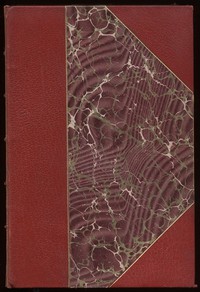Guy Mannering; or, The Astrologer — Complete by Walter Scott (good books to read in english .TXT) 📗

- Author: Walter Scott
Book online «Guy Mannering; or, The Astrologer — Complete by Walter Scott (good books to read in english .TXT) 📗». Author Walter Scott
‘I have no doubt, sir, they are thoroughbred; but, to have so many dogs, you seem to have a very limited variety of names for them?’
‘O, that’s a fancy of my ain to mark the breed, sir. The Deuke himsell has sent as far as Charlie’s Hope to get ane o’ Dandy Dinmont’s Pepper and Mustard terriers. Lord, man, he sent Tam Hudson [Footnote: The real name of this veteran sportsman is now restored.] the keeper, and sicken a day as we had wi’ the foumarts and the tods, and sicken a blythe gae-down as we had again e’en! Faith, that was a night!’
‘I suppose game is very plenty with you?’
‘Plenty, man! I believe there’s mair hares than sheep on my farm; and for the moor-fowl or the grey-fowl, they lie as thick as doos in a dookit. Did ye ever shoot a blackcock, man?’
‘Really I had never even the pleasure to see one, except in the museum at Keswick.’
‘There now! I could guess that by your Southland tongue. It’s very odd of these English folk that come here, how few of them has seen a blackcock! I’ll tell you what--ye seem to be an honest lad, and if you’ll call on me, on Dandy Dinmont, at Charlie’s Hope, ye shall see a blackcock, and shoot a blackcock, and eat a blackcock too, man.’
‘Why, the proof of the matter is the eating, to be sure, sir; and I shall be happy if I can find time to accept your invitation.’
‘Time, man? what ails ye to gae hame wi’ me the now? How d’ ye travel?’
‘On foot, sir; and if that handsome pony be yours, I should find it impossible to keep up with you.’
‘No, unless ye can walk up to fourteen mile an hour. But ye can come ower the night as far as Riccarton, where there is a public; or if ye like to stop at Jockey Grieve’s at the Heuch, they would be blythe to see ye, and I am just gaun to stop and drink a dram at the door wi’ him, and I would tell him you’re coming up. Or stay--gudewife, could ye lend this gentleman the gudeman’s galloway, and I’ll send it ower the Waste in the morning wi’ the callant?’
The galloway was turned out upon the fell, and was swear to catch.--’Aweel, aweel, there’s nae help for’t, but come up the morn at ony rate. And now, gudewife, I maun ride, to get to the Liddel or it be dark, for your Waste has but a kittle character, ye ken yoursell.’
‘Hout fie, Mr. Dinmont, that’s no like you, to gie the country an ill name. I wot, there has been nane stirred in the Waste since Sawney Culloch, the travelling-merchant, that Rowley Overdees and Jock Penny suffered for at Carlisle twa years since. There’s no ane in Bewcastle would do the like o’ that now; we be a’ true folk now.’
‘Ay, Tib, that will be when the deil’s blind; and his een’s no sair yet. But hear ye, gudewife, I have been through maist feck o’ Galloway and Dumfries-shire, and I have been round by Carlisle, and I was at the Staneshiebank Fair the day, and I would like ill to be rubbit sae near hame, so I’ll take the gate.’
‘Hae ye been in Dumfries and Galloway?’ said the old dame who sate smoking by the fireside, and who had not yet spoken a word.
‘Troth have I, gudewife, and a weary round I’ve had o’t.’
‘Then ye’ll maybe ken a place they ca’ Ellangowan?’
‘Ellangowan, that was Mr. Bertram’s? I ken the place weel eneugh. The Laird died about a fortnight since, as I heard.’
‘Died!’ said the old woman, dropping her pipe, and rising and coming forward upon the floor--’died? are you sure of that?’
‘Troth, am I,’ said Dinmont, ‘for it made nae sma’ noise in the country-side. He died just at the roup of the stocking and furniture; it stoppit the roup, and mony folk were disappointed. They said he was the last of an auld family too, and mony were sorry; for gude blude’s scarcer in Scotland than it has been.’
‘Dead!’ replied the old woman, whom our readers have already recognised as their acquaintance Meg Merrilies--’dead! that quits a’ scores. And did ye say he died without an heir?’
‘Ay did he, gudewife, and the estate’s sell’d by the same token; for they said they couldna have sell’d it if there had been an heir-male.’
‘Sell’d!’ echoed the gipsy, with something like a scream; ‘and wha durst buy Ellangowan that was not of Bertram’s blude? and wha could tell whether the bonny knave-bairn may not come back to claim his ain? wha durst buy the estate and the castle of Ellangowan?’
‘Troth, gudewife, just ane o’ thae writer chields that buys a’ thing; they ca’ him Glossin, I think.’
‘Glossin! Gibbie Glossin! that I have carried in my creels a hundred times, for his mother wasna muckle better than mysell--he to presume to buy the barony of Ellangowan! Gude be wi’ us; it is an awfu’ warld! I wished him ill; but no sic a downfa’ as a’ that neither. Wae’s me! wae’s me to think o’t!’ She remained a moment silent but still opposing with her hand the farmer’s retreat, who betwixt every question was about to turn his back, but good-humouredly stopped on observing the deep interest his answers appeared to excite.
‘It will be seen and heard of--earth and sea will not hold their peace langer! Can ye say if the same man be now the sheriff of the county that has been sae for some years past?’
‘Na, he’s got some other birth in Edinburgh, they say; but gude day, gudewife, I maun ride.’ She followed him to his horse, and, while he drew the girths of his saddle, adjusted the walise, and put on the bridle, still plied him with questions concerning Mr. Bertram’s death and the fate of his daughter; on which, however, she could obtain little information from the honest farmer.
‘Did ye ever see a place they ca’ Derncleugh, about a mile frae the Place of Ellangowan?’
‘I wot weel have I, gudewife. A wild-looking den it is, wi’ a whin auld wa’s o’ shealings yonder; I saw it when I gaed ower the ground wi’ ane that wanted to take the farm.’
‘It was a blythe bit ance!’ said Meg, speaking to herself. ‘Did ye notice if there was an auld saugh tree that’s maist blawn down, but yet its roots are in the earth, and it hangs ower the bit burn? Mony a day hae I wrought my stocking and sat on my sunkie under that saugh.’
‘Hout, deil’s i’ the wife, wi’ her saughs, and her sunkies, and Ellangowans. Godsake, woman, let me away; there’s saxpence t’ ye to buy half a mutchkin, instead o’ clavering about thae auld-warld stories.’
‘Thanks to ye, gudeman; and now ye hae answered a’ my questions, and never speired wherefore I asked them, I’ll gie you a bit canny advice, and ye maunna speir what for neither. Tib Mumps will be out wi’ the stirrup-dram in a gliffing. She’ll ask ye whether ye gang ower Willie’s Brae or through





Comments (0)